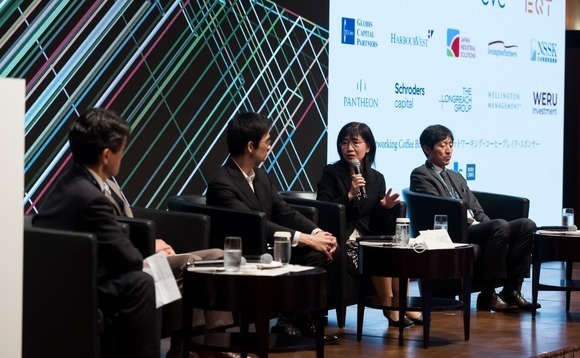
Japanese LPs rue shorter fundraising cycles, currency depreciation - AVCJ Forum

Managers coming back to market more frequently and a depreciating yen are playing havoc with LP allocations to private equity, institutional investors told the AVCJ Japan Forum.
"The fundraising cycle is getting shorter – in the past it was every two years, now it's every 18 months. When we set out budgets, we use the first commitment as a benchmark, so we overran our budget. We didn't want to reduce the number of GPs, so we reduced the commitment size per fund," said Tadashi Nishizawa a managing director in the private equity department at Japan Post Bank.
Currency depreciation has complicated matters. The yen began 2022 at JPY 115 to the US dollar and stayed at that level through March. Since then, it has sunk to JPY 142. Jesper Koll, a Japan-based economist and executive director at Monex Group, told the forum he thought it could reach JPY 160.
About 70% of Japan Post Bank's existing portfolio is hedged, so the impact of currency fluctuations has been limited. However, making new investments, especially at a time when vintage length in private equity is shortening, is problematic. "What we have trouble with is new commitments," Nishizawa explained.
Japan Post Bank has a relatively young portfolio, but it has been active in private equity for seven years. As of March, its portfolio was worth JPY 4.4trn (USD 30.8bn), of which JPY 1.2trn comprised unrealised gains. There has been a positive return in each of the last five years, with a gain of JPY 125bn posted for the 12 months ended March 2021, a threefold increase on the previous year.
Orix Life Insurance launched its global alternatives programme in 2020, so found itself building up exposure with an initial annual budget of JPY 50bn (USD 350m) when due diligence efforts were hampered by COVID-19 but the pace of fundraising – after an initial pause – was unprecedented.
Noriko Hayashi, head of private equity at Orix Life, explained that the team leveraged its existing networks when planning for 2021 and then pushed commitments backwards and forwards as managers altered the timing of their final closes. In some cases, Orix Life was asked to confirm its participation several months in advance or risk losing access.
"We started planning for 2023 this year, but because of the forex situation, our budget has been reduced by 30%," said Hayashi. "What we had planned is already finished for this year, so we've had to reduce the commitment amounts. We are also trying to understand which managers will be patient and wait until next spring and which ones want to have capital this year."
Meanwhile, the combination of currency depreciation and the strong tailwinds for private equity in recent years – followed by a slower correction than in public markets – left Osaka Gas Pension Fund with an allocation that exceeded its JPY 40bn target size.
Hiroyuki Hashizume, a manager in the finance team, noted that the portfolio pushed beyond the upper limit of the permitted trading range. The pension fund was forced to explore sales through the secondary market to reduce its balance. "We did this because we had no other choice," he said.
Ryoichi Arai, a trustee responsible for the endowment at International Christian University (ICU), added that the situation is complicated by a lack of visibility as to how the yen will move. "If the hedging cost is 4% a year and continues over 10 years, that is 40%. Without hedging, the expected return from private equity is going to go down, and that is a concern," he said.
The JPY 57bn ICU endowment started investing in private equity five years ago and has a significant allocation to the asset class, in part because it needs to generate a return of inflation plus 4%. With inflation moving upwards, Arai said that the endowment was considering an increase in its exposure to private debt because of the interest rate link.
Latest News
Asian GPs slow implementation of ESG policies - survey
Asia-based private equity firms are assigning more dedicated resources to environment, social, and governance (ESG) programmes, but policy changes have slowed in the past 12 months, in part due to concerns raised internally and by LPs, according to a...
Singapore fintech start-up LXA gets $10m seed round
New Enterprise Associates (NEA) has led a USD 10m seed round for Singapore’s LXA, a financial technology start-up launched by a former Asia senior executive at The Blackstone Group.
India's InCred announces $60m round, claims unicorn status
Indian non-bank lender InCred Financial Services said it has received INR 5bn (USD 60m) at a valuation of at least USD 1bn from unnamed investors including “a global private equity fund.”
Insight leads $50m round for Australia's Roller
Insight Partners has led a USD 50m round for Australia’s Roller, a venue management software provider specializing in family fun parks.








